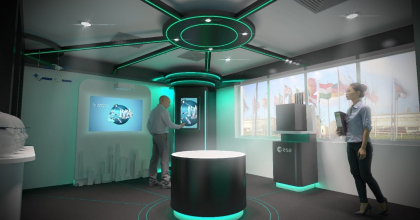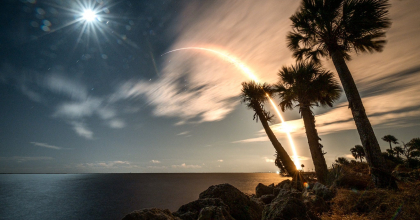Scottish pioneer of pocket satellites proves they are real…
The Glasgow-based pioneer of miniaturised satellites, Alba Orbital, started the year by announcing the sale of the first two Unicorn-2 PocketQubes to US-based start-up, Stara Space.

The democratisation of Space
PocketQube satellites are made up of 5cm cubes, which can be stacked to make larger variants. Relatively new phenomena, (the first four PocketQubes were launched into space in 2013) they are based on an even smaller platform than the CubeSats – with an even lower price tag, democratising space and bringing significant benefits to small companies and academia.
Unicorn-2 is Alba Orbital’s second-generation PocketQube platform and the most advanced platform in its class, developed under ESA’s ARTES C&G Technology Phase. Paul Greenway, ESA’s Technical Officer for the project, says: “The C&G Technology phase has provided Alba Orbital with the resources and expertise to de-risk the critical technologies they require. Together we've developed and proven the capabilities of this miniature platform. This will enable Alba Orbital to produce a whole series of Unicorn-2 satellites.”
Each spacecraft weighs in at a very nifty 750 grams including payload. With such a small payload, the advanced Nano electronics on board gives an excellent return on investment – Unicorn 2 potentially saves satellite operators up to 50 per cent of the cost of hardware and launch compared to alternative approaches.
Miniature or ‘picosatellites’ initially snuck into Space on the coat tails of bigger spacecraft. Now they are taking flight in their own right.

“We chose the name ‘Unicorn’ because it’s our national animal,” says Tom Walkinshaw, founder and CEO of Alba Orbital Limited, “Scotland is the only country to have chosen a mythical creature as its symbol”.
Stara space will launch their first two Unicorn 2 satellites this autumn, demonstrating crucial technologies required to create a real-time global communications. The satellites are part of a constellation of picosatellites that will provide high speed data connection, storage, and computation for space.
They will fly on Alba Launch cluster 2, joining five other PocketQube customers on the cluster, which is now sold out. “This launch will prove the two satellites can talk to each other”, says Greenway, “Unicorn 2’s innovative attitude control pointing system, developed through the ARTES C&G Technology Phase, has enabled this.”
The launch will be the biggest deployment of PocketQubes in history, with the goal of providing a regular service for the PocketQube community, servicing start-ups such as Stara, along with universities and space agencies.
For Alba Orbital, the future is bright. Tom Walkinshaw adds: “We’re well on our way, as we’re growing quite quickly. We’ve expanded, doubled our footprint in the last two years – and in the last three years quadrupled our working space. Now we have a big office, a manufacturing room – we call it the unicorn factory!”




